In a year that bonded us to our couches, TV was our closest confidante – this year saw the last remaining vestiges of pre-Covid media, as well as mid-Covid programming that simultaneously felt extremely normal and highly dystopian. As much as I would love a ranked list, in 2020 it felt unfair – our brains were not processing information and media the way they were last year. There were no parties, no after-work happy hours to discuss what everyone is actually watching. We were left to our own devices (literally), picking shows because they spoke to us, smoothed our brains out for 20 minutes, or simply… Were available. So without further ado, please enjoy fifteen of the MGRM staff’s favorite shows of 2020, and five that brought us deep comfort.
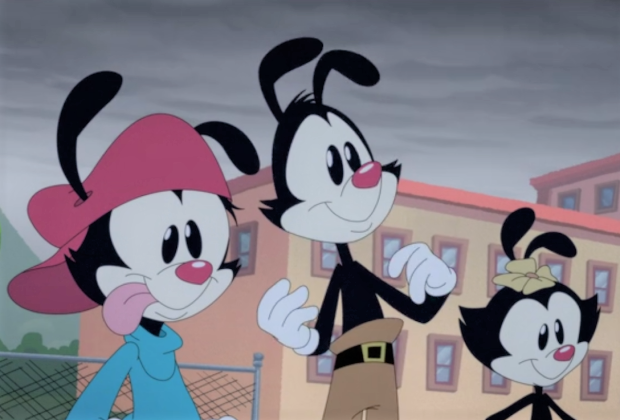
ANIMANIACS (HULU)
I’m not ashamed to say the best show I watched this year is the ANIMANIACS. I could lie to everyone and say my favorite show was a gritty crime show or a hard-hitting, realistic drama, but I’m a child, and I like to have fun. On occasion, I even like to be a little “wacky.” Sometimes I just want to watch three people (or cats? Dogs? I don’t know, who cares what they are!) be completely off their rocker; it is a winning formula that traces back to The Marx Brothers, and it remains just as hilarious. Yakko, Wakko, and Dot are back after a nice 20-year hiatus, and boy do they have a lot to say, while simultaneously having nothing to say. They can brag about selling out to Hulu in one episode then have a well-written allegory about bunnies breeding and gun control in the next. These goofballs find themselves in a whole new millennium, but they are still just as hilarious—I can’t remember the last time I laughed as hard as I did at the Greek games episode. Unlike other revivals of ’90s cartoons, the ANIMANIACS stands on its own; it doesn’t rely solely on nostalgia, in fact, after the first episode the ball continues rolling and it essentially operates as its own show.
While being home this year, I feel I have regressed back into my child-like self, and ANIMANIACS hit the spot. It brought a smile to my pathetic face, tears in my wrinkled eyes, and cramps of laughter in my stomach. Unlike other revivals of popular television shows, ANIMANIACS doesn’t feel like a big celebration of their once glory days, but instead feels like a warm reunion with three old friends that you are happy to see have not changed in the slightest. [Wyatt Lemoine]
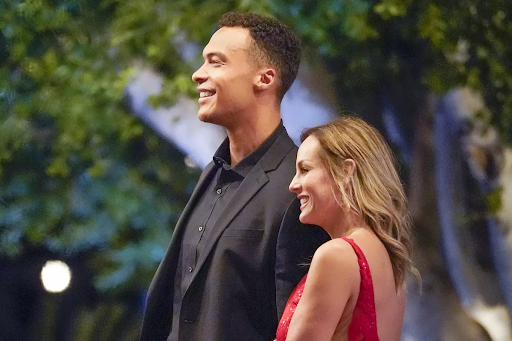
THE BACHELOR [SEASON 24] (ABC)
THE BACHELORETTE [SEASON 16] (ABC)
An anxious cast of women openly using a notoriously conservative competition series as an agency mixer, a constantly distraught mother who lived for her son’s spotlight, and Hannah Ann Sluss, a digital entrepreneur smartly exploiting the show until it clicked that THE BACHELOR had begun using her. All this trouble for… Peter Weber? That guy? It was incredible: finalist Madison Prewett wasn’t the MVP from the jump because of some storybook love connection, she was literally the only one expressing interest in the blandest of white-bread men, and even she grew weary of not just Peter, but the very process of starring on ABC’s THE BACHELOR, briskly exiting the show right as all signs led to her clinching a diamond ring. It was insanity. By the time producers caught wind of their own program slipping through their fingers, Peter had already blown the money shots by pure virtue of being Peter. After months of meticulous planning, the cash haul tumbled out the suitcase and blew through the wind: it was like watching Kubrick’s THE KILLING for the very first time again. And that’s not all: the Bachelor broke up with his match off-camera then found love with an eliminated contestant, also off-camera.
The entertainment industry couldn’t keep up with a cast of cum-brained influencers-on-the-rise hungry for endorsements and each others’ flesh. This latest season of THE BACHELOR didn’t conclude—it simply stopped. ABC would learn from this L and milk season 16 of THE BACHELORETTE for every drop of its disarray, going as far as producing it during a goddamn pandemic: one of the more dystopian moments in 2020 American media was the dramatic season premiere chronicling the suitors’ self-quarantines, discovering whether they tested positive or negative for the novel coronavirus to the tune of some media library’s “Suspense Music 001.” Demented stuff, but what followed was a run-of-the-mill reality show car crash, carefully gauged for maximum claustrophobia and La Quinta Villas-induced cycles of entrapment. They started teasing Chris Harrison’s “You just blew up THE BACHELORETTE” bombshell at the same time Tayshia promo began plastering the Americana’s turnstiles: it was brain-smoothing fun to see the show bank on chaos, but it was a Hell of a lot funner when, for once, Big Brother legitimately lost control of the narrative. [Kevin Cookman]
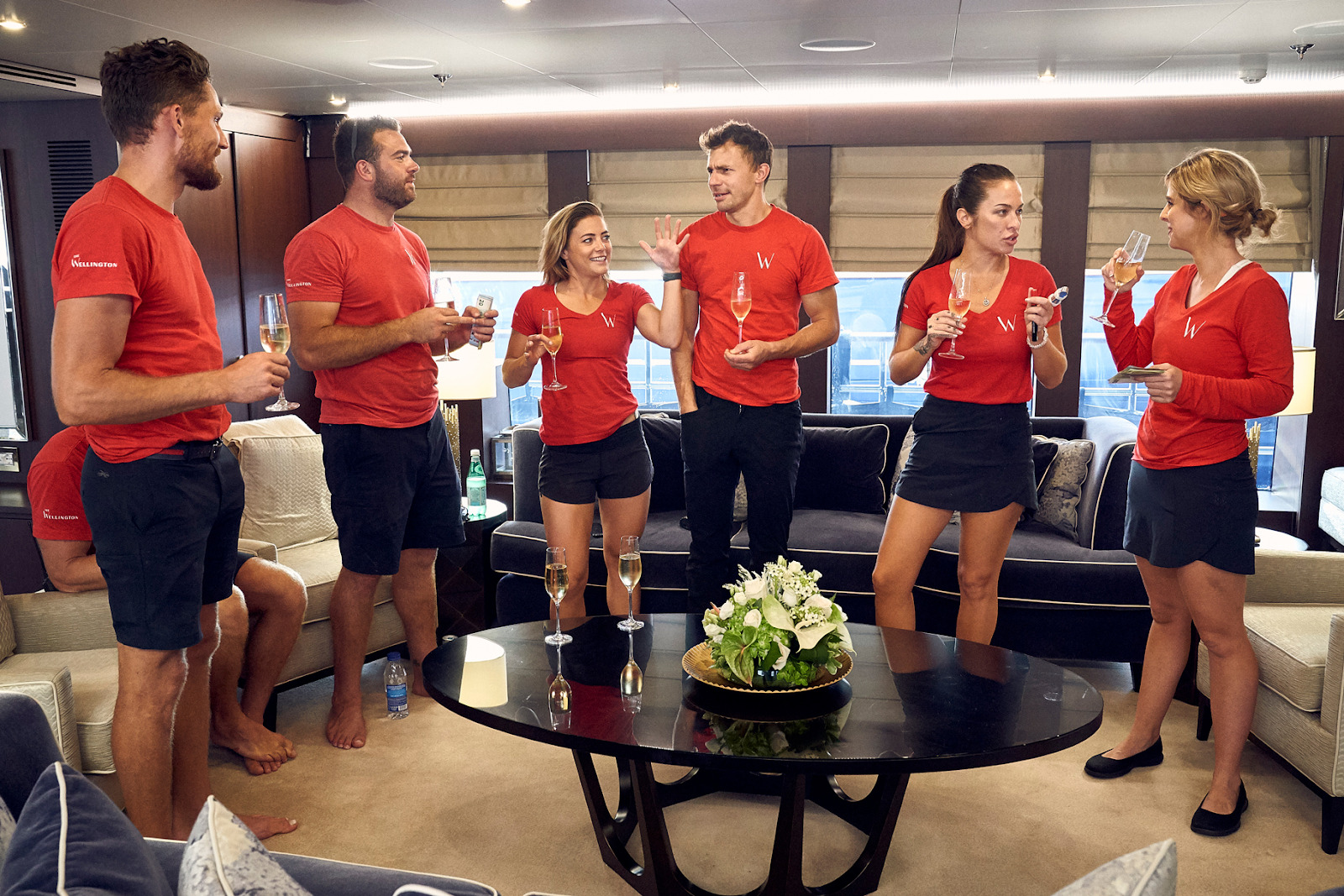
BELOW DECK: MEDITERRANEAN [SEASON 5] (Bravo)
It’s almost as if Bravo got the early tip that 2020 would be the roughest of them all. Not one, not two, but three seasons of BELOW DECK in a single year? Thanks for the drip-flow dopamine. S5 of MEDITERRANEAN was the highest-rated in the program’s history, what with its rotating cast of employed-then-suddenly-unemployed, overworked yachties irreparably tainting their professional resumés for your guilty viewing pleasure, all led by Captain Sandy mugging for the camera like her Cameo career depended on it. There has never been a reality series that explored the primality of surveillance, jealousy, and labor as BELOW DECK has, and with three spin-offs in tow, the perversions aren’t slowing down any time soon. Charter after charter of ungrateful, pompous capitalist guests—it feels pretty bad seeing how deeply the crew debases themselves on national television for a cash tip divided among, at the very least, 14 crew mates, but then you really scroll through their personal IG’s and realize none of them have social distanced for a single second of these past nine months. Eh, never mind. Dance, monkey, dance. [Kevin Cookman]
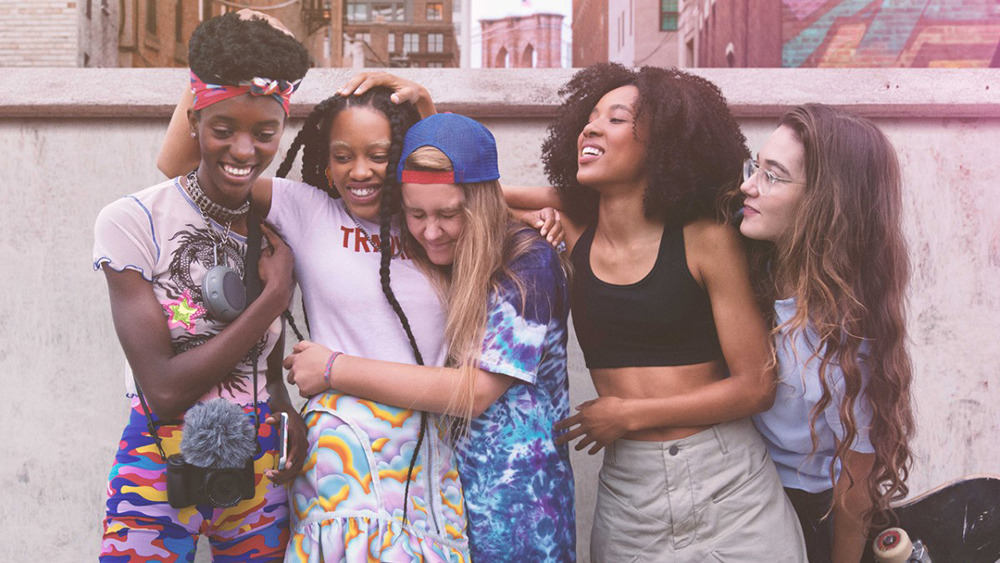
BETTY (HBO)
Talking about representation is oftentimes a trap but here I am about to dabble anyway. To put it as plainly as possible: it’s a bummer that diverse stories don’t exist and when they do they aren’t given the same support as less marginalized voices. And when diverse stories do simply exist, it doesn’t automatically mean they are good. Talking solely about the representation that exists or is created in a piece of art without talking about the quality of or the craft behind that piece of art is infantilizing and does nothing to push the work of and about marginalized identities forward.
With that being said: BETTY is a great show. It is not a great show just because it features young women of color, queer women, young women skateboarders, etc.—although it is a great show because it tells these stories well. The people these characters are inspired by are involved in the process of making the show, and everyone’s better off for it. The characters are funny, free to make mistakes, and the styling is on point. I went through a skateboarding phase that might have lasted a little longer if BETTY had existed at that time. But hey! I am very grateful to have this now. [Amanda Ball]
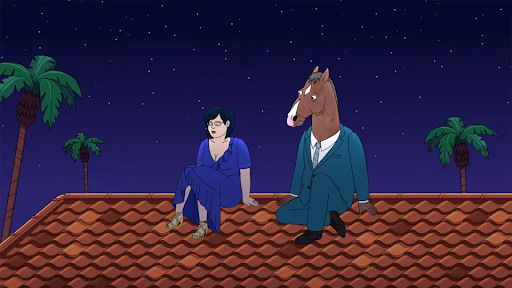
BOJACK HORSEMAN [Season 6] (Netflix)
“Well, what’re you gonna do,” Bojack dryly jokes in S6’s final moments, sitting on a roof with the infinite universe above. “Life’s a bitch and then you die.”
I wanted to see Bojack Horseman die.
That was a strange desire to reckon with, I’ll admit. And I don’t feel good about wanting that, but I think especially at the close of S5, a part of me felt like that was the correct way for BOJACK HORSEMAN to end, with a man—uh, horse, at the end of his rope, lamenting a lifetime of selfishness and bad decisions and self-destructive habits as they compounded in on him one last time. Not only a comeuppance, but a closing loop on the tragedy of one horse’s life. And that’s not what we got. It was close—certainly S6’s most striking episode, “The View from Halfway Down,” offered a look at what those walls closing in would feel and look like for Bojack. But it wasn’t ultimately how Raphael Bob-Waksberg chose to wrap up his smug, masterful look at addiction, childhood stardom, and Hollywood. Instead, as Diane considers Bojack’s colloquialism, the show concludes with an even darker notion. “Sometimes life’s a bitch and then you keep living.” It’s what Bojack Horseman deserves. [CJ Simonson]
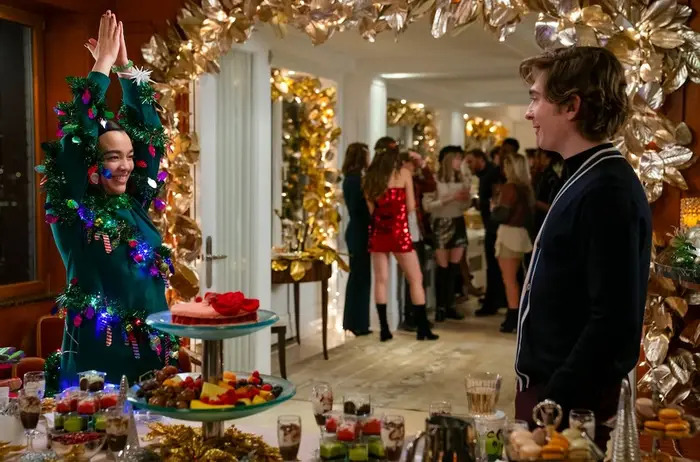
DASH & LILY (Netflix)
This might sound crazy, but I can’t remember the last time I saw a pilot as strong as that of DASH & LILY—because of the absurd conceit of the Netflix Christmas-themed rom com miniseries (stay with me), the first episode is key, and DASH & LILY finds its rhythm quickly. Saturated with that warm holiday chiaroscuro and peppered with enough Christmas Stuff™ that it satiates a December desire for holiday media, but holds up easily throughout the rest of the year. Unfortunately, Netflix has figured out the incredibly simple code into my heart, and continues to make media that feels deeply personal to me and like 15 of my closest gal pals; while I was drawn to DASH & LILY because I am ravenous for any high-concept rom com set in New York City, what held my attention the most was Lily herself. Lily is quirky, mixed race, and far too genuine to be a normal high schooler at her all girls’ school in the city. This literally describes like five of my friends. And me. It’s a continuation of my beloved TO ALL THE BOYS I’VE LOVED BEFORE, a fun new play on the “awkward rom com lead” of old. She’s not awkward, she’s just misunderstood. DASH & LILY was a perfect balm for a soul that can never decide whether it hates Christmas or loves it—maybe it can be both. Maybe it just takes the right song, or movie, or even the right person to make you love it. For me? It’s DASH & LILY baby. [Aya Lehman]
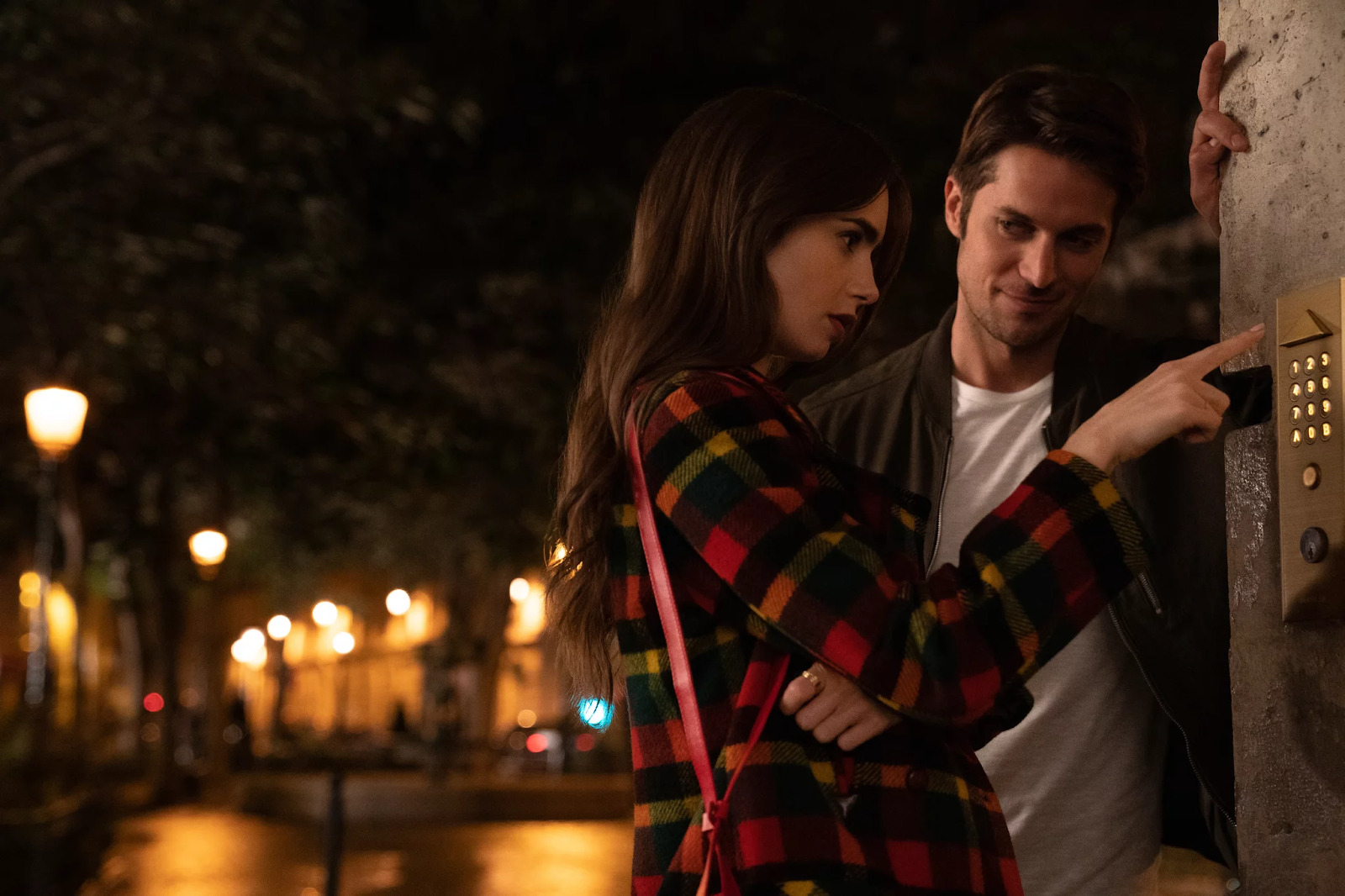
EMILY IN PARIS (Netflix)
I’ve written about my queen Emily probably too much at this point. But in the absolutely most unthinkable way possible, EMILY IN PARIS kind of saved me. I was getting to the end of my rope: a week after my quar birthday, less than one month before the election, and my kitten had just gotten spayed. I was about to lose my freakin mind. And then I met EMILY, my quarantine queen, the most gorgeously mindless show, starring an actress I find endlessly captivating, set in a city I will not be able to return to anytime in the near future. It was a clean slate, an emotional reset, as I abandoned my own general unrest re: pandy/election/global uprising/watching my poor kitten bump into everything with her massive cone in favor of the plights of Mlle. Emily. I was almost manic, turning off my TV after the finale I called my friend and said, “I feel like I just did cocaine.” But that’s just the side effect of EMILY: pure elation. I wish I could bottle that feeling, take a tiny sip every time everything started to feel like Too Much, but I guess that’s what Netflix dot com is for…. Rewatching EMILY IN PARIS ad infinitum. [Aya Lehman]
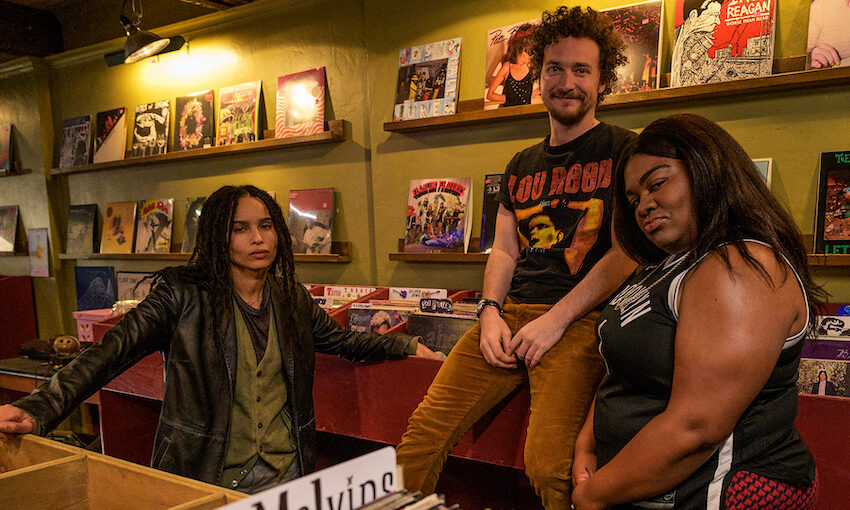
HIGH FIDELITY (Hulu)
The first and now only season of HIGH FIDELITY is perhaps as good a totem for the way that television fizzled out in 2020 as any other. Was it a perfect first season? Not by any stretch. The gender-flipped remake of the 2000 John Cusack rom com (itself based on a 1995 novel of the same name) tried to lay the groundwork for what a new take on the source material could be while simultaneously remaking at times (nearly shot for shot) the original with new leads and updated music references. HIGH FIDELITY never should’ve been punished for that—not only is exploring the rom com format head-on in a season-long arc hard, the series was attempting to thread a difficult needle between beloved nostalgia and timely update. And in retrospect, it did exactly what any messy first season should do: laying down all the characters, story arcs, and motivations to find success in a now-lost S2, one that would shift the focus away from Zoë Kravitz’s Rob and instead look at Da’Vine Joy Randolph’s Clarise, the perfect momentum swing away from the, at times, too closely-remade season one. Updating mixtapes to playlists, switching Stevie Wonder’s “I Just Called To Say I Love You” for Michael Jackson’s OFF THE WALL, and shifting cameos from Bruce Springsteen for Debbie Harry, HIGH FIDELITY was cheeky fun, and still makes S1 a fascinating and worthwhile relic worth revisiting despite cancellation. But in a year where so many shows with strong female leads got axed before the rubber really even met the road with regards to the pandemic’s effect on Hollywood is a damn shame, and symbolizes much larger issues. [CJ Simonson]
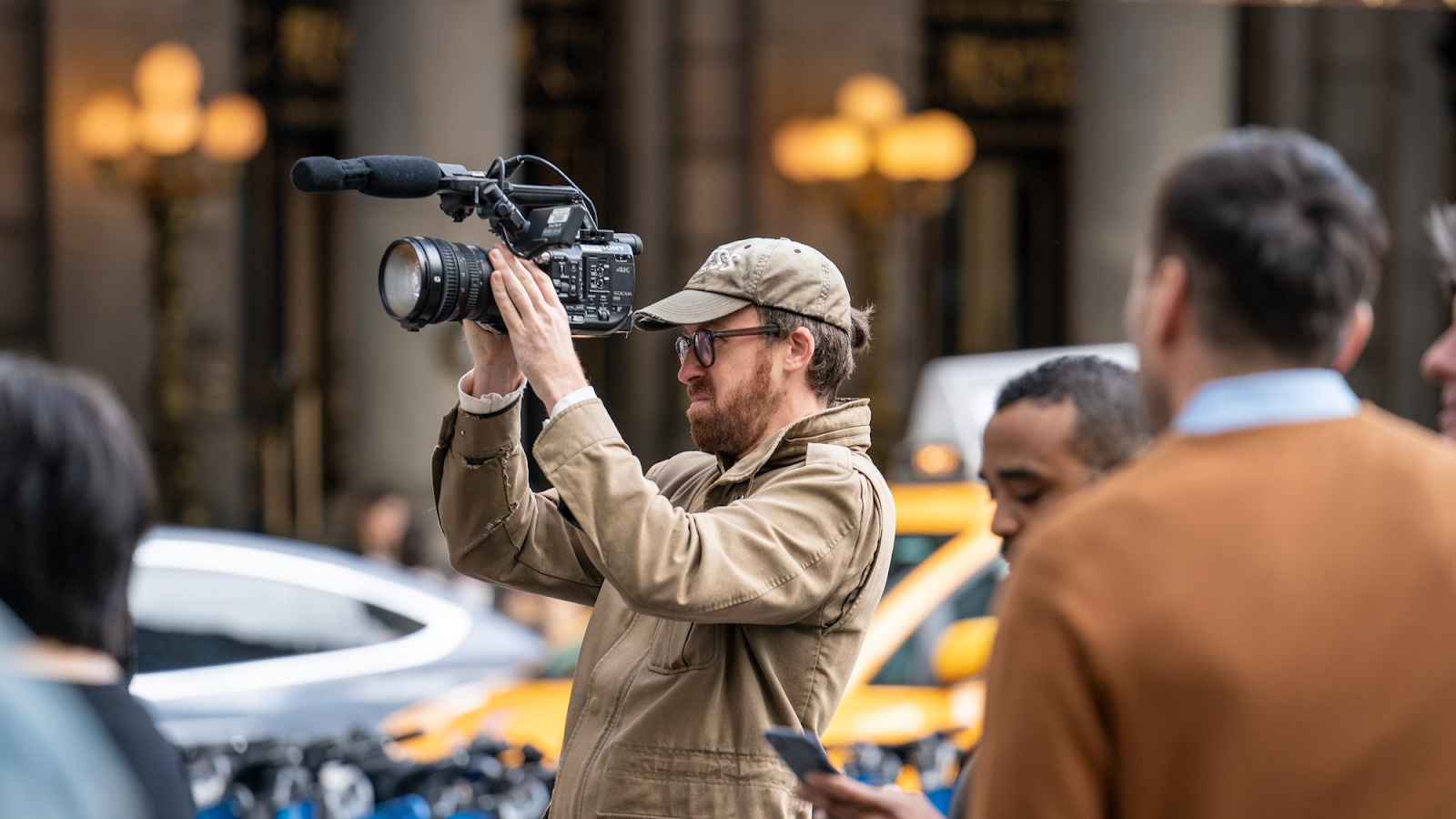
HOW TO WITH JOHN WILSON (HBO)
It makes perfect sense that Nathan Fielder is the producer for John Wilson’s first TV show. Both Fielder and Wilson have perfected the act of going one step further, yes and-ing real people in the real world to the point of ridiculousness. Each episode of HOW TO WITH JOHN WILSON is ostensibly instructive, providing meditations on simple tasks like “How To Make Small Talk” or “How To Cover Your Furniture” but quickly spiraling out of control as Wilson films, questions, and narrates himself away from whatever the episode is supposed to be about, and into a variety of odd comedic scenarios. No other show this year could feature an extended Cancun spring break sequence and a solid minute of Kyle Machlaclan trying and failing to get on the subway. You’ve probably already heard about HOW TO’s standout season finale, but every 30-minute episode is a charming example of how much untapped potential for humor lies in editing. Wilson clearly goes to great lengths to compile months of footage into these short episodes, and somehow manages to incorporate just as many punny inserts as he does expressionistic footage of the natural weirdness of a large city like New York. There’s no easier comedy to recommend this year: HOW TO WITH JOHN WILSON is the real deal, because it quite literally is all real. [Ian Campbell]
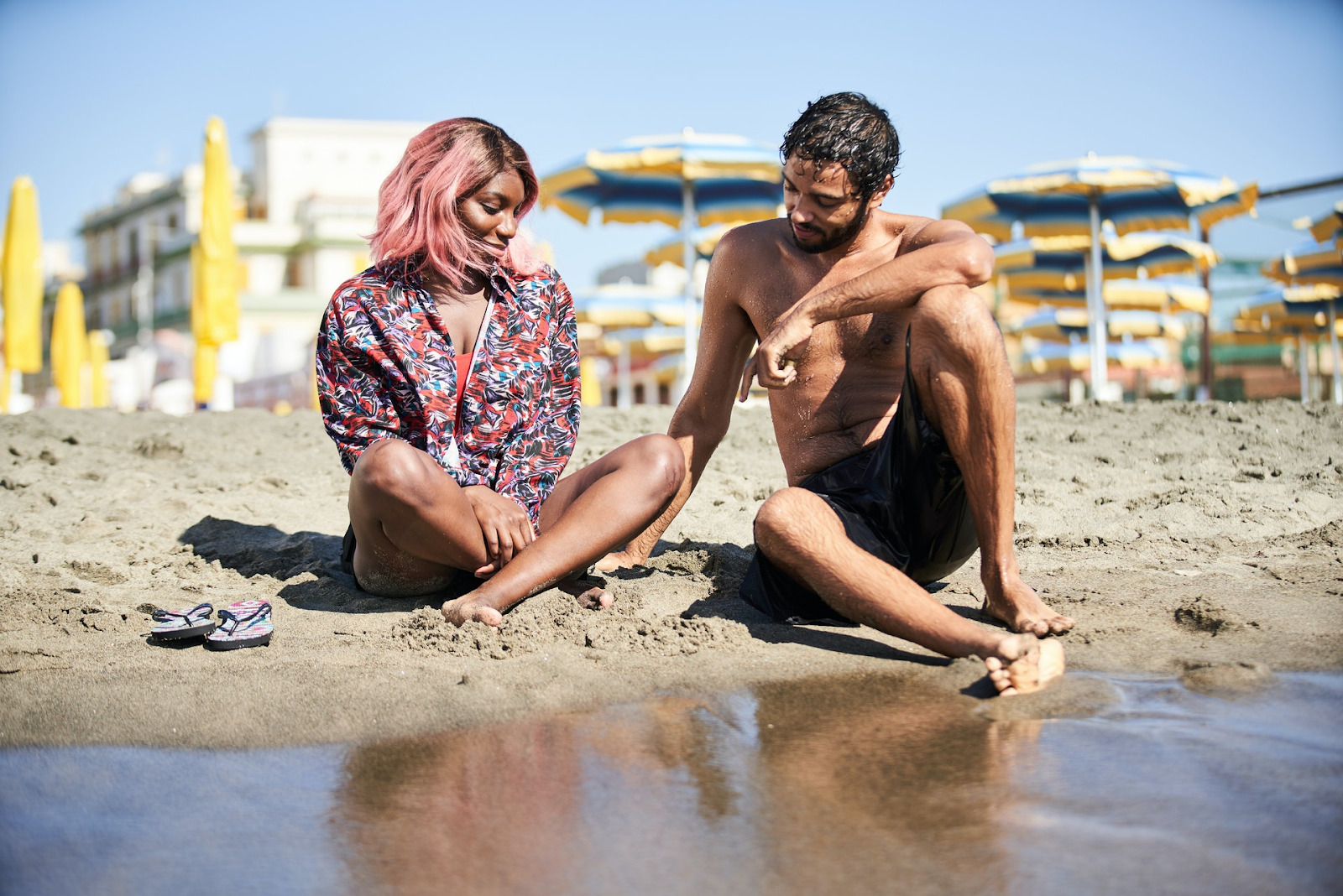
I MAY DESTROY YOU (HBO)
How do you handle your trauma? Do you ignore it? Face it head-on? Maybe you confide in your close friends or seek therapy to help you move on. Maybe you fantasize about how you’ll seek revenge. Perhaps you’ve suppressed it for so long you don’t even know that it’s still there. These are just a few scenarios Michaela Coel tackles over the course of I MAY DESTROY YOU. It’s not always an easy watch, often delivering on its titular promise as it explores the meaning of consent and how it affects our lives in so many ways. Much of the show’s brilliance lies in Coel’s commitment to being vulnerable onscreen through her character, Arabella, as she seeks emotional clarity while sorting through the ruins of her trauma. The season finale is one of the finest episodes of television in recent memory and is a perfect summation of the entire show—equal parts messy, funny, and healing. [Becca Lengel]
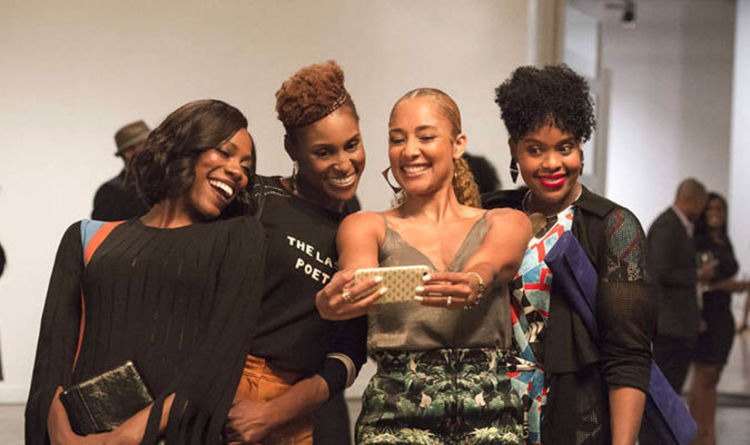
INSECURE [Season 4] (HBO)
S4 of INSECURE is the show’s best season yet: Issa and Molly’s toxic relationship finally comes to a head, Issa and Lawrence dabble with gaining closure, and Issa seems to have a better relationship with her wants and needs. While the character was floundering a bit in S1-3, she’s now doing the damn thing and I love to see it—Issa (the character) and the writers’ room seem to be hitting their stride at the same time. So many of 2020’s most compelling television moments cames from this season of INSECURE including, but not limited to, iconic guest performances from rapper Aminé as a himbo swooning over Kelli, Wendy Racquel Robinson aka Tasha Mack aka Principal Grier as Issa’s mom, and the ever-iconic Kyla Pratt as the very messy Dina. But ultimately this season also brought what many other television shows, and sometimes even the previous three seasons of INSECURE, often lacked: a nuanced take on relationships and growing up. [Amanda Ball]
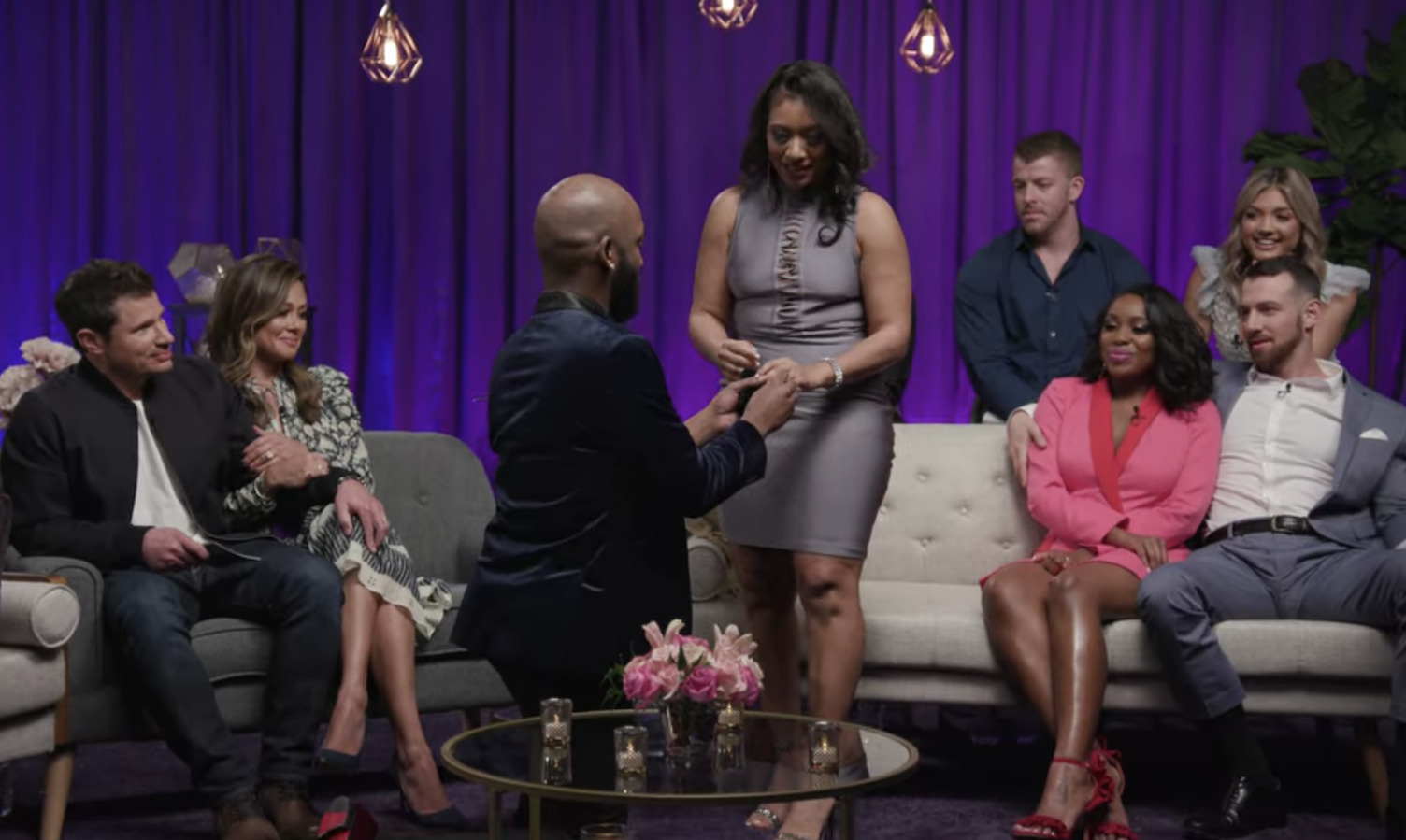
LOVE IS BLIND (Netflix)
I have become a shell of my former self. I miss the days of seeing my friends and learning the latest gossip. Who is dating who, who broke up with who, who hates who—I live for this kind of stuff. However, this year has made my gossip levels hit an all-time low; I feel like a balloon with no air. Luckily, LOVE IS BLIND saved me. With just one show, I was able to get more than enough gossip to last me through this dry year. I compare this show to a prototype of the NBA bubble, where a lot of good-looking strangers are taken out of society and forced to compete against each other in isolation. It’s like LORD OF THE FLIES, but with a lot less death and a lot more romantic drama. In a year of quarantine, the contestants on LOVE IS BLIND have become the closest I’ve had to friends, and honestly, I could do a lot worse. [Wyatt Lemoine]
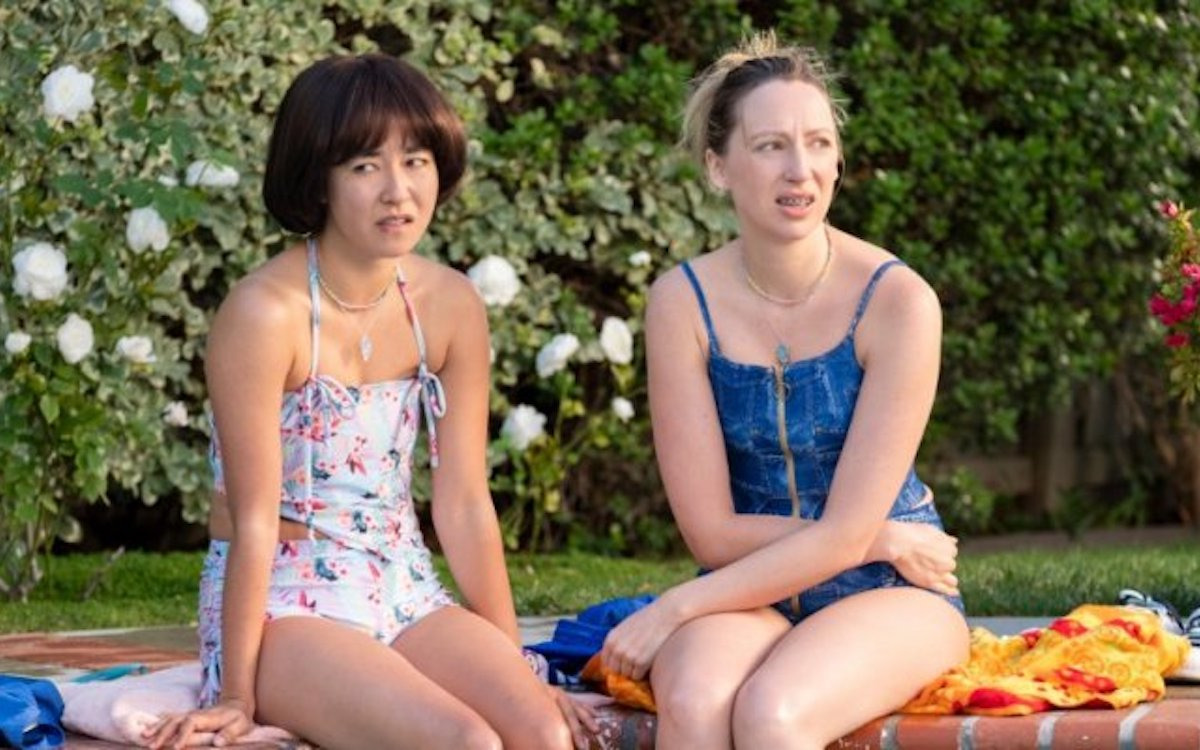
PEN15 [Season 2] (Hulu)
Kids are strange. Better yet, kids are fucking weird. Yet, a notion we often forget or overlook is that the peculiarities of children are nuanced. PEN15 does not overlook these nuances but rather capitalizes on and often celebrates them. While S1 was captivating, S2 was completely awe-inspiring. Anna Konkle and Maya Erskine managed to incorporate a child’s understanding of queerness, racism, puberty, and the moment when you stop revering your parents, all with a neat little bow and an aching need to protect. Ultimately PEN15 S2 reminds us how universal coming of age really is. There are differences big and small to adolescence but at its core the embarrassment, the shame, but mostly the strength you develop, will always be there. Like most of the internet, I cried my eyes out when Anna, a 30-year-old woman, apologized to her mother. Or when Maya gave Sam one last longing look—I ached for their “relationship.” A plethora of coming-of-age media often gets it wrong; we graft years of adult retrospection into young kids, instead of taking things at face value. Kids are odd, obnoxious, volatile, and vulnerable, and PEN15 is ushering in a new kind of television by accepting that with open arms. Sylavnian forever, Gabe Sun, Maya Moon, Anna Rising. [Jesse Herb]
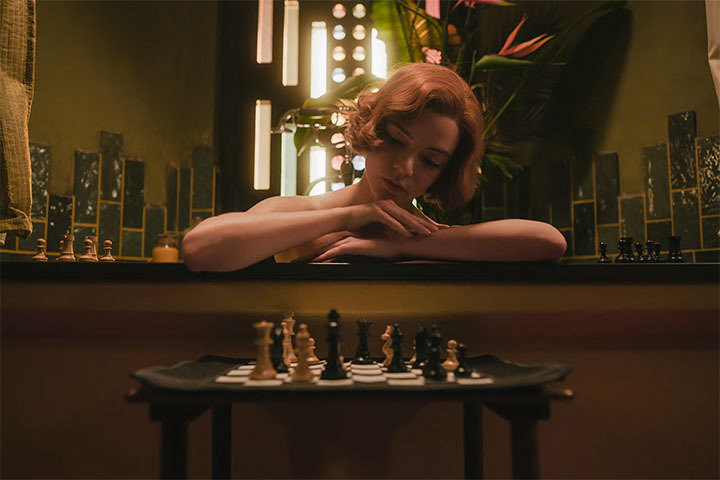
THE QUEEN’S GAMBIT (Netflix)
My second favorite thing about THE QUEEN’S GAMBIT is that in its entire 393-minute run time, it never, not once, tries to teach me how to play chess. Even just a fleeting moment spent explaining the complexities of the cerebral game to viewers would be too much time taken from my favorite part of THE QUEEN’S GAMBIT: sexy chess. That’s right, baby. Chess? Oh, it’s sexy. How sexy, you ask? Sexy enough that you may find yourself with bad thoughts about the kid from LOVE ACTUALLY. So sexy you may look to chess dot com as your next dating app. Of course, anything is sexy when Anya Taylor-Joy is involved and as chess prodigy Beth Harmon, she’s as alluring as ever. Though the show has its flaws (mainly lack of character development for anyone other than Beth and a first episode that is as laborious to get through as it is important to Beth’s character), the dreamlike sets and enthralling chess matches made THE QUEEN’S GAMBIT a perfect outlet of escapism in this awful year. [Becca Lengel]
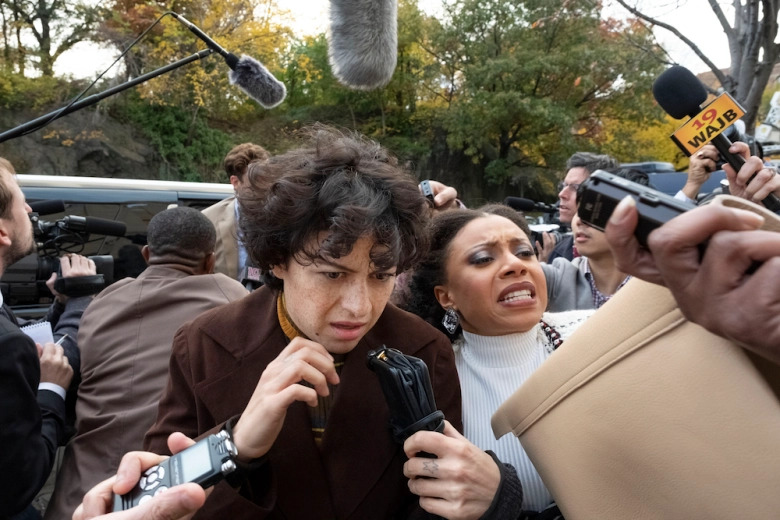
SEARCH PARTY [Season 3] (HBO Max)
Everyone loves assholes. That’s the only explanation for why we root for Dory Sief (Alia Shawkat) to get away with murder. Sure, she used to be the modern everywoman, casually getting obsessed with finding a girl she barely knows, accompanied by her lovable weenie boyfriend Drew (John Reynolds) and her slightly-offensive glam squad Elliott (John Early) and Portia (Meredith Hagner). S3 showed us that Dory is creative, driven, powerful, a truly resilient survivor. She’s also an asshole. A selfish, murdering asshole that we love.
The narrative progression from season-to-season of SEARCH PARTY bursts with originality and juicy “what’s gonna happen next” tension. The search leads to murder, the murder leads to trial (and more murder). Even though this season presented itself as an experiment with a well-worn genre, twists and turns abound as the core foursome oscillates between selfish survivalism and cautious allyship. The comedy half of this dramedy comes mostly from the side characters, including less-than-ideal defense attorneys Cassidy Diamond (Shalita Grant) and Bob Lunch (Louie Anderson). Come for the shocking drama, stay for the spoiled millennials living in a hell of their own design. [Dan Blomquist]
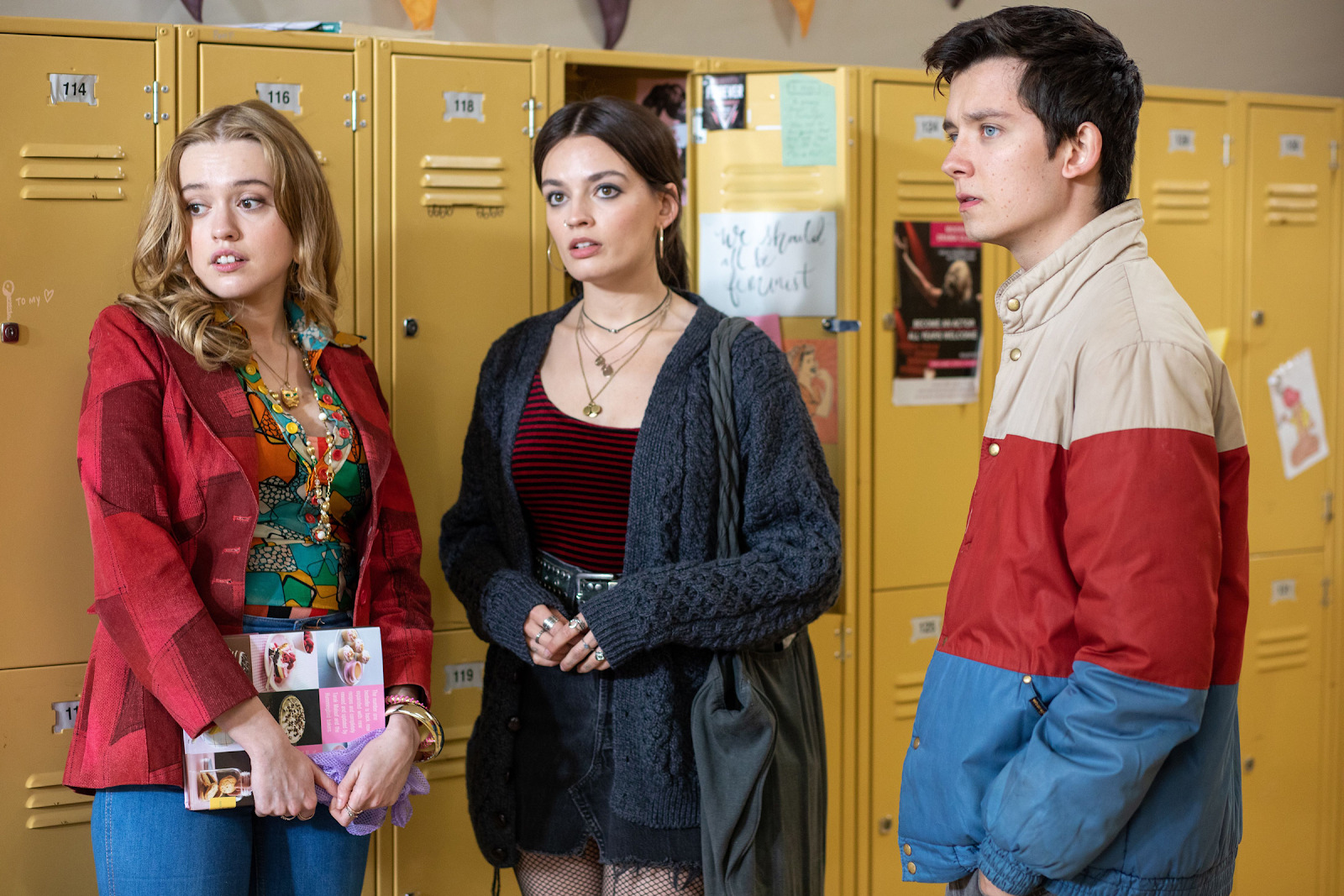
SEX EDUCATION [Season 2] (Netflix)
Listen! I am obsessed with these silly teens in their beautiful homes, gorgeous school, and fantasy Welsh land that is kind of devoid of real place and time. This obsession speaks to the best part of the SEX EDUCATION: how fleshed out all of the characters are, and how good the performances from its young cast end up being. Sometimes SEX EDUCATION can feel a bit formulaic—that’s not a dig, it’s a show about high school there are only so many things that can happen. But despite that, it is always riveting. Even though the setting of the show might feel like an aesthetic fantasy, the problems are real! TV about teens is often not made with teens in mind, and thus deals too indulgently with extremes. Heightening the stakes is great for drama, sure, but what SEX EDUCATION proves is that there is a way to do that while keeping your characters human. They’re just young people with crushes and constant pressure to figure themselves out and meet their parents’ expectations. I want the best for each and every one of them truly—they even had me falling for the bully. [Amanda Ball]
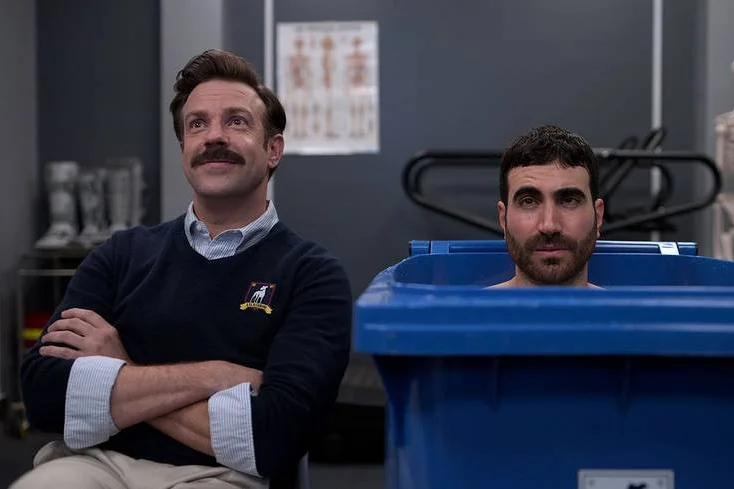
TED LASSO (Apple TV+)
I have a very bad habit of writing off original programming from certain streaming platforms, and for some reason, if someone tells me Apple TV+ made a good show, I’m like, “Sure Jan.” But EVERYONE was talking TED LASSO this fall, and for good reason–TED LASSO has the same Good Vibes™ energy as PARKS AND RECREATION without that awful sticky sappiness that inevitably ruined the NBC comedy. It’s life-affirming—not in a way that Buzzfeed would describe as “giving you all the feels,” but in the way that Paddington is, a funny little reminder that sometimes, things are good. Maybe it’s the show’s British sensibilities that keep the viewer on their toes, but the goodness sneaks up on you between all the roasts and ribs, and every time something sincerely nice happens it’s like, oh shit! I accidentally grew older and realized it’s actually much cooler to love as much as you can. TED LASSO introduced me to mine and the rest of the nation’s newest boyfriend: Roy Kent (Brett Goldstein), the perfect grumpy boyfriend to influencer/angel Keeley Jones (Juno Temple). But of course the real star is creator/titular Ted Lasso, Jason Sudeikis—Lasso’s endless positivity never feels smarmy or heavy-handed, instead it balances perfectly with his Southern charm and sharp wit that consistently manage to catch you off guard.
TED LASSO is shockingly novel despite its simple premise, particularly in its celebration of male friendship; whether you’re watching a team of British footballers cry at the end of IRON GIANT or Coach Beard simply offering Ted a pint of beer after a difficult night, there’s a quiet celebration of vulnerability and true affection between these men that is difficult to come by, even still. It’s no surprise that TED LASSO was renewed for a second season after only three episodes, and then renewed for a third season two months later – there’s something so good about being… so good. [Aya Lehman]
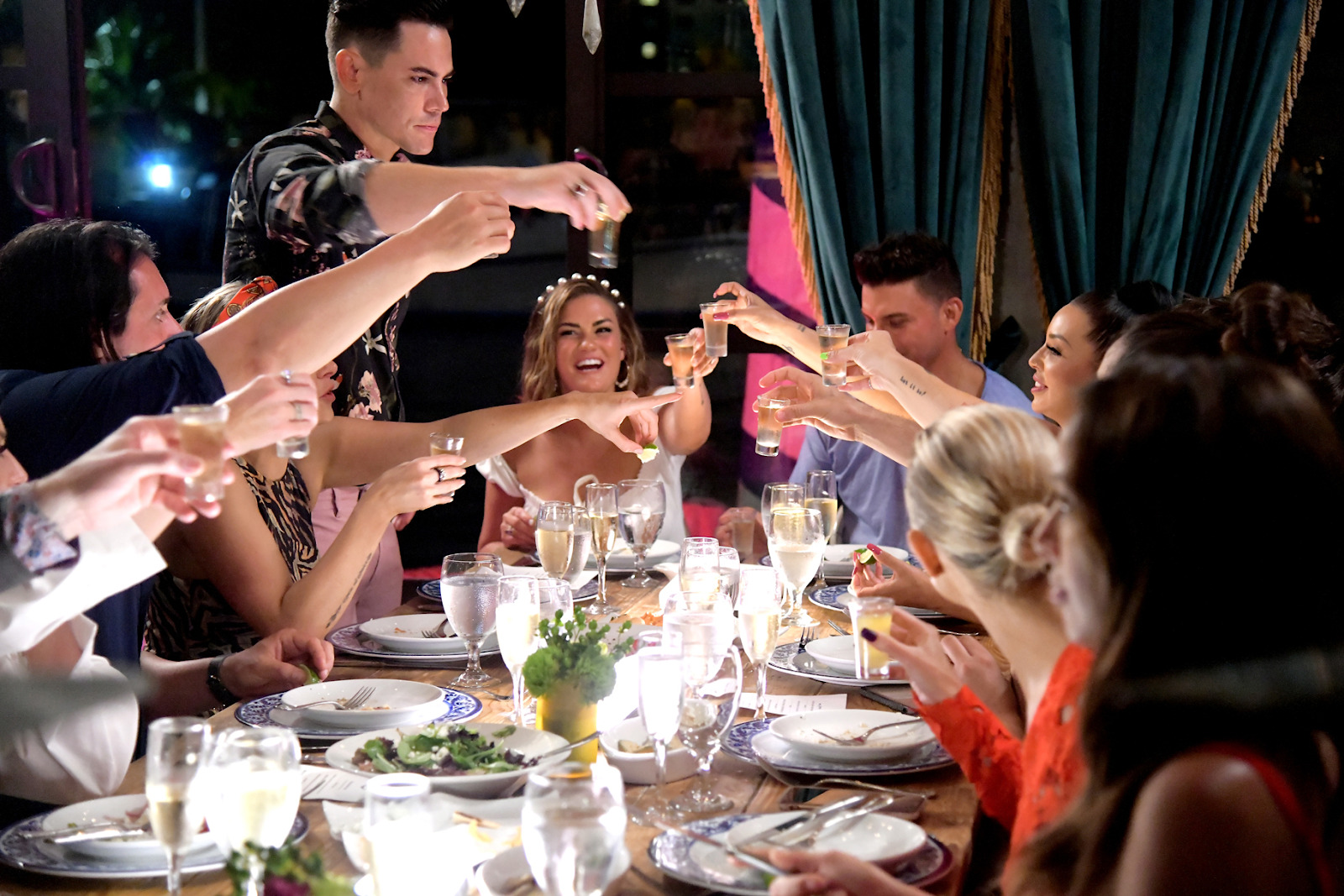
VANDERPUMP RULES [Season 8] (Bravo)
My dad always told me that reality TV only exists to help greedy corporations fill time slots with lower production costs. I bought into the idea that a show needs scripts and trained actors to be worthy of attention, let alone praise. Smarmy little me, high on a sense of false superiority, regularly bashed reality TV as a genre and dismissed all associated programs. If only I could have seen then what I see now.
Reality TV birthed a grand arrangement of tropes and tricks that have been painstakingly arranged into the gorgeous mosaic that is VANDERPUMP RULES. The romantic intrigue of THE BACHELOR/ETTE, the ruthless bloodsport of SURVIVOR, and the decadent chaos or THE REAL HOUSEWIVES took the small screen by storm in 2013, thanks to a cabal of waitresses and bartenders who share the dream: being famous in Los Angeles. This dream spawns the competition at the root of VANDERPUMP, the endless battle for screen time. When Jax told Tom Sandoval “I’m the number one guy in this group,” he cut to the core of what keeps the group united despite the pain they inflict on each other. On some level, they all understand that their struggle for stardom drives the ratings. They tear and gnash each other for our entertainment, and honestly, you love to see it.
All of this is to let you know that when I say this, I say it with love: S8 of VANDERPUMP RULES was not very good. It doesn’t measure up to any of the other seasons, though many of S8’s problems were starting to form in S7. The attempt at injecting large quantities of new blood went poorly. The only new characters whose names I remember are the ones who got booted. But there’s a bigger, more structural problem. The cast has, in a sense, grown up. They’re still petty and shallow, sure, but the arguments have moved from the iconic SUR back alley to two-story houses worth 10 years of my annual salary. I’m not scolding them for improving their lives; I’m unironically happy for them. But it’s harder to sell their desperation when they’re clearly no longer desperate.
And yet, while S8 fails to live up to VANDERPUMP’s own standards, it still exceeds the standards of most reality TV. Sure, there’s a few decent imitations out there, but nothing hits quite as hard as the SUR gang and their absolutely insane dedication to drama. I’m not sure we’ll ever see something like this again. [Dan Blomquist]
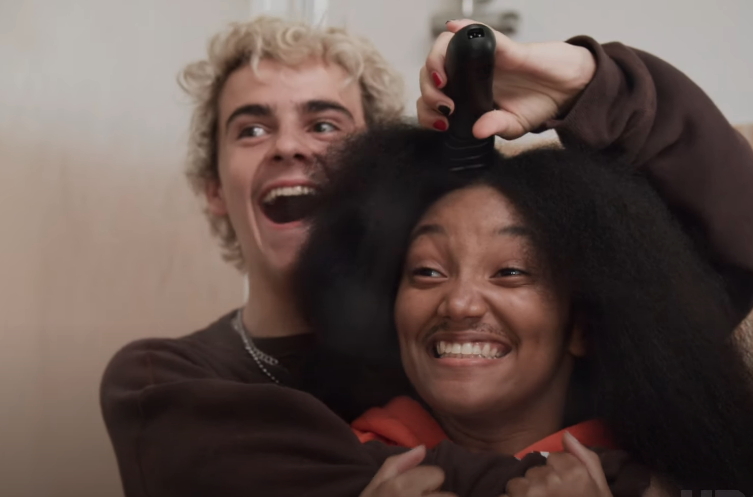
WE ARE WHO WE ARE (HBO)
The thing I’d often think after watching an episode of WE ARE WHO WE ARE is “Damn, I think this is my EUPHORIA.” Obviously there are some similarities—teens in high school exploring their identities in relationship to each other, beautiful visuals and sonic flourishes—but when that feeling arose it was mainly because of the personal connection I felt to the show. I felt that nagging need to talk to someone about it, to write about it, and to post about it. WE ARE WHO WE ARE was virally popular in much the same way EUPHORIA was, but exclusively to me. Luca Guadignino’s first television project is by no means a perfect object, but under his direction, Fraser and Harper’s journey of self-discovery at a military base in Italy is an absolutely beautiful experience. I was totally on board for musical sequences, random instances of slow motion, freeze-frames, and all that Blood Orange. That the show is able to capture a beautiful, intimate relationship AND ponder the fascist strong-man ride we’ve been stuck on for the last several years is ballsy! I can’t say it entirely works, but I dug Chloe Sevigny as a petty, queer colonel and I would gladly watch another season.
WE ARE WHO WE ARE has all the features you’d expect from a Guadagnino film (in the sense that there’s an Italian-ness to this that has nothing to do with the setting), but mercifully, it’s also a TV show. There are distinct episodes, with contained thoughts. Having that specific episode-long space to appreciate the visual storytelling, and the boundaries between people and conceptions of self that are being drawn, is the real joy of the show. [Ian Campbell]
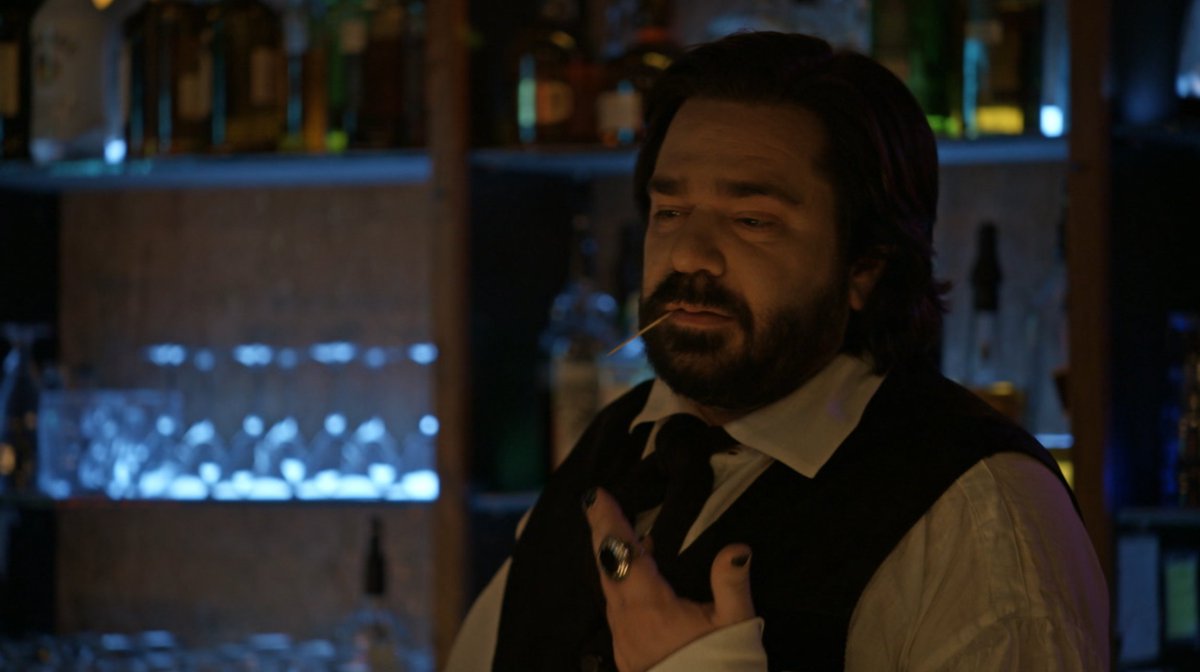
WHAT WE DO IN THE SHADOWS [Season 2] (FX)
The leap that WHAT WE DO IN THE SHADOWS made from season one to season two was sizable. Be it quarantine or a jump in quality, the vampire mockumentary saw a heightened viral visibility that moved it not only out of the shadow of the original film, but out of the shadow of FX and FXX’s traditionally niche and out-of-the-way comedies. Be it Nandor’s love of the 1992 Dream Team, the fact Lazlo believes himself to be the original writer of “Come On Eileen,” or Nadja’s endearing relationship ghost-inhabited doll, the details of these characters have become as wacky and charming as the pitch for a TV length reboot always promised. 2020 robbed us of plenty, but the inability to see people dressing as Jackie Daytona, regular human bartender, for Halloween ranks high on the list. WHAT WE DO IN THE SHADOWS quickly grew to must see TV during its season two run, and it’ll be interesting to see if it can carry that momentum going forward. [CJ Simonson]
Thanks for reading! Merry-Go-Round Magazine is an independent media source funded by people like you! If you’re enjoying our End of 2020 Coverage, consider becoming a member of our Patreon, or even donating to our operation here!


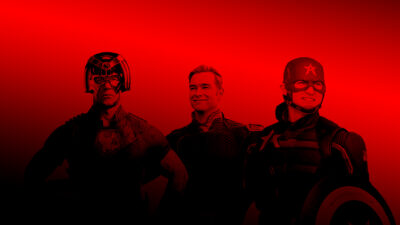

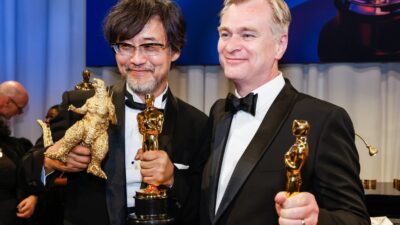
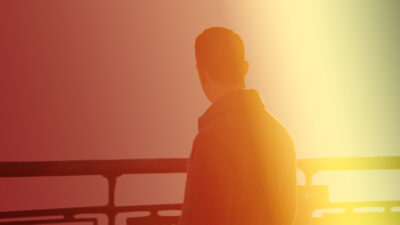



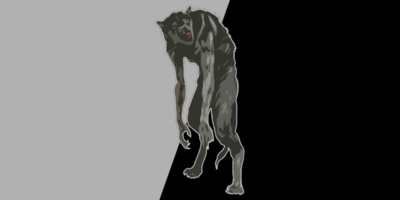
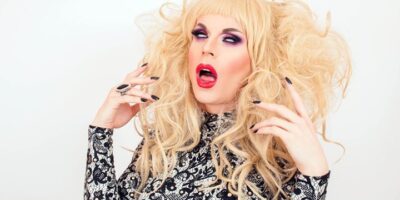

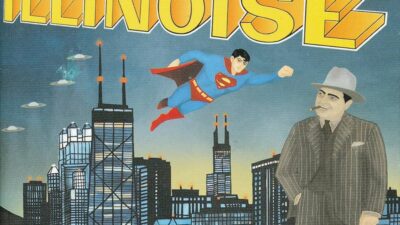
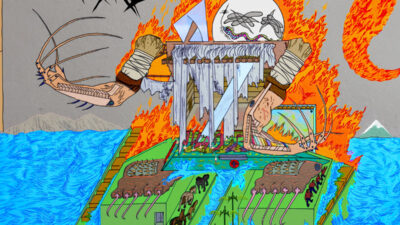
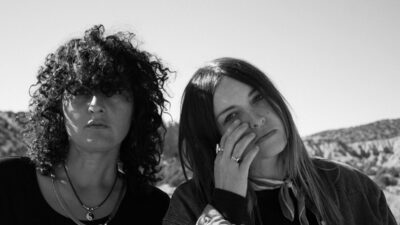

Comments